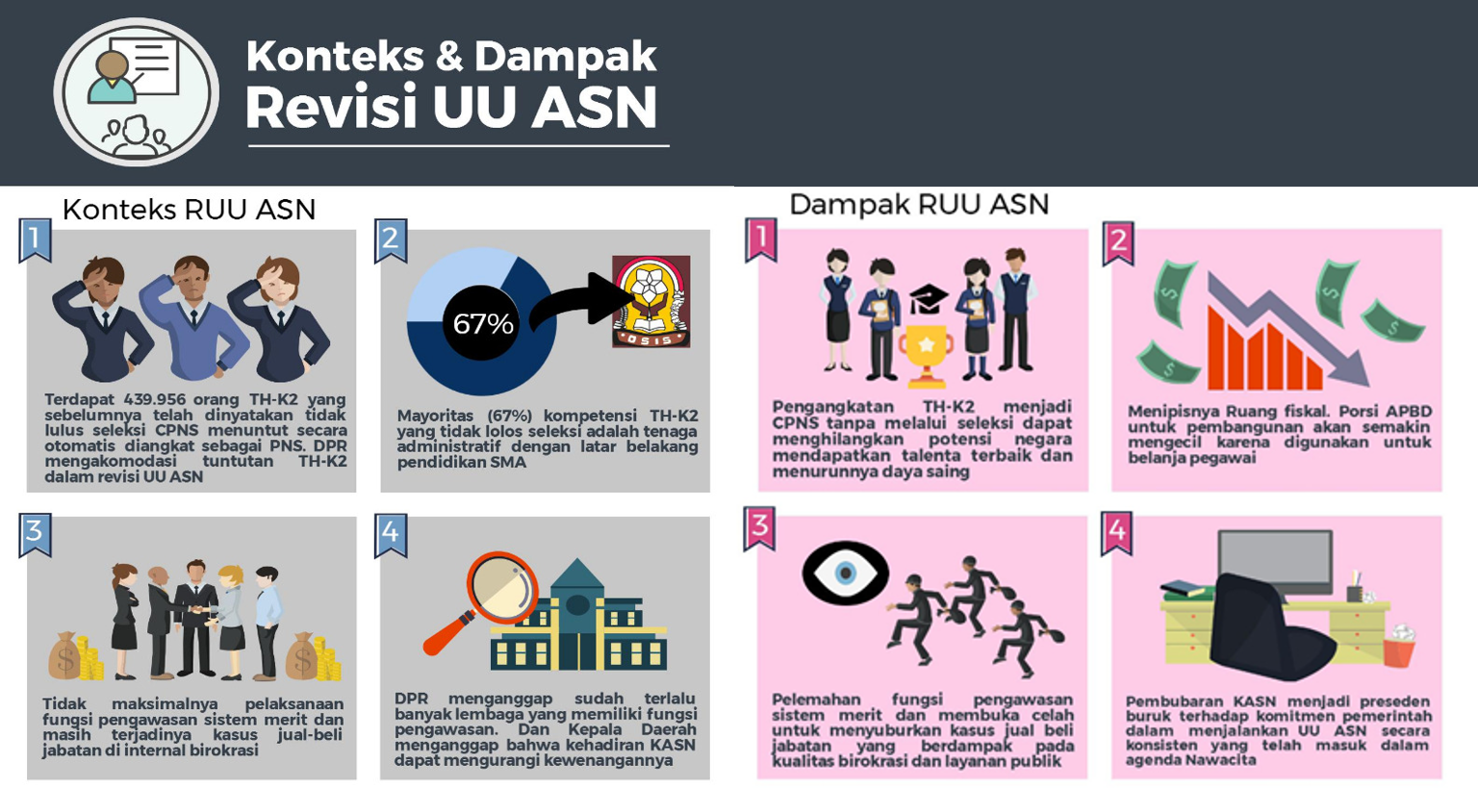by Iskhak Fatonie
After the two-day broad consultative meeting on 16-17 February 2017 in Bogor on a proposed revision of Law 5/2014 on Civil Service, KSI and its partners facilitated a number of events that have resulted in the Government questioning DPR’s decision to revise Law 5/2014. The meeting was hosted by the Independent Team for National Bureaucratic Reform (TI-RBN) and attended by relevant ministries, policy research institutes, NGOs, universities, CSOs and legal experts. A formal announcement is expected shortly.
First, the ‘Bogor team’ met with the president’s Chief of Staff, Teten Masduki, on 3 March 2017. Participants were members of the TI-RBN and the National Civil Service Commission (KASN), including Eko Prasojo, Siti Zuhro, Djohermansyah djohan and J. B. Kristiadi. Recommendations included:
- Accelerate the enactment of implementing regulations of UU ASN as guidelines for how to properly implement meritocracy and open promotion systems;
- Instead of revising Law 5/2014, draft a Government Regulation (Peraturan Pemerintah) to convert some 400,000 contract-based government employees into civil servants;
- Draft a ‘national talent management pool’ for all civil servants;
- Strengthen the KASN as a monitoring body of meritocracy and open promotion system.
As well as the Chief of Staff, the team reported and made recommendations to Vice President Jusuf Kalla as the chair of the National Steering Committee of Bureaucratic Reform (KPRBN). These meetings were covered widely by the media.
Second, the ‘Bogor team’ produced a joint statement and infographic on the coalition’s position, which was presented at a press conference on 22 March 2017, attended by several media and widely covered by online and traditional media.
Third, KSI partner Seknas FITRA (a participant in the original Bogor meeting) organised well-covered seminars in Surabaya (East Java) on 17 March 2017, Samarinda (East Kalimantan) on 21 March 2017, and Medan (North Sumatra) on 27 March 2017. The three seminars were attended by Commissioners of KASN, local academics, local government officials and local NGOs. The main takeaway was strong local support for the continued role of KASN to monitor the promotion process of senior executive services (Sekda, Kepala Dinas, Kepala Biro, etc.). If anything, just like the anti-corruption KPK agency, KASN should be strengthened to reduce bad practices of collusion and nepotism among bureaucrats, including transactional politics (jual beli jabatan).






